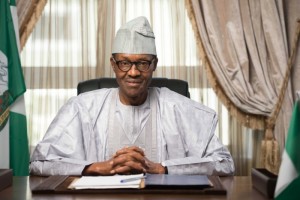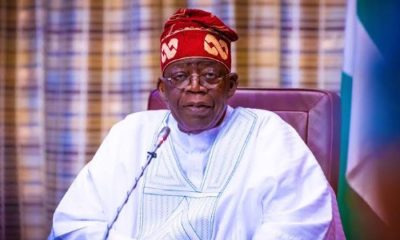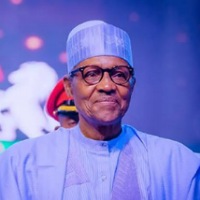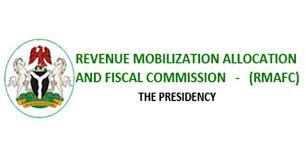Finance
TSA: President Buhari threatens severe sanctions against erring Agencies

ABUJA-FOLLOWING the Federal Governments directive to all revenue generating agencies to ensure remittances to a Treasury single account (TSA) President Muhammadu Buhari has warned all Agencies of Government that severe sanctions would be visited on all and any Agency of Government that fails to comply with the directive.
The President also warned that severe sanctions would be visited on any individual or organisation that violated his directive on the payment of all national revenues into the Federation Account.
President said that the Nigerian National Petroleum Corporation, the Nigerian Ports Authority and other MDAs which previously relied on the laws establishing them to retain all or part of the revenues collected by them, did so illegally and must now comply with the Nigerian Constitution by paying all revenues into the Federation Account.
on Tuesday said he was disappointed at the way Nigeria’s oil industry had been operated since he left office as a former petroleum minister and as a military Head of State in 1985.
Buhari said those who led the country since then had allowed the nation’s refineries to collapse in order to give their cronies the latitude to steal by importing refined petroleum products.
According to a statement by the President’s Senior Special Assistant on Media and Publicity, Garba Shehu, Buhari spoke during a meeting he had with a delegation of the Revenue Mobilisation, Allocation and Fiscal Commission at the Presidential Villa in Abuja.
Buhari blamed the past administrations for the current situation in which Nigeria is forced to spend billions of naira annually on subsidies for petroleum products.
He said the increase in petroleum subsidy payments over the years was due to the deliberate neglect of the nation’s refineries as well as oil pipelines and other infrastructure in the oil sector in order to allow the importation of petroleum products and corruption to thrive.
He said he was convinced that there would not have been any need for the huge subsidies currently being paid to importers if the development of the country’s domestic refining capacity and petroleum products distribution network had kept pace with national demand.
“They (past administrations) allowed the infrastructure to collapse so that their cronies can steal by bringing in refined products from overseas,” Shehu quoted the President as saying.
He therefore urged the chairman and members of the RMAFC, who availed him of their view on petroleum subsidy payments, to come up with more humane proposals to rescue ordinary Nigerians from what he described as the “wicked manipulation” of the country’s oil industry by corrupt operators.
Buhari was ousted in a 1985 coup led by Gen. Ibrahim Babangida, who ruled the country as a military president from in 1985, till he was forced to step aside 1993 following the uproar that greeted the annulment of that year’s presidential election, won by the late businessman, Chief Moshood Abiola.
Babangida left an Interim National Government, led by Chief Ernest Shonekan. Few months after Babangida left, the late Gen. Sani Abacha pushed aside Shonekan and ruled from that 1993 till he died on June 8, 1998.
Gen. Abdusalami Abubakar, who succeded Abacha handed over to Chief Olusegun Obasanjo in 1999 to usher in a fresh democratic dispensation in the country. Obasanjo served two terms and handed over to the late President Umaru Yar’Adua in 2007. After the death of Yar’Adua on May 5, 2010, his deputy, Goodluck Jonathan took over and led the country till May 29, 2015, when he handed over to Buhari.
Buhari was also said to have chided the RMAFC for approving what he called “excessive remunerations” for some political office holders.
He therefore urged the delegation to seek a proper interpretation of the commission’s powers and address the public outcry against the high payments.
Meanwhile, the Nigeria Labour Congress on Tuesday insisted that the Federal Government must investigate funds that were allegedly stolen during the last days of the Jonathan administration.
The NLC, at its national leadership retreat, which held in Calabar, Cross River State, also warned the new Group Managing Director of the NNPC, Dr. Emmanuel Kachikwu, not to think of removing oil subsidy.
The NLC president, Mr. Ayuba Wabba, warned that the fight against corruption by Buhari should not be trivialised.
The NLC boss lamented that the Federal Government had failed to remit N35bn to Pension Funds Administrators for workers in the last 11 years.
He said, “Another issue that we are again compelled to comment on is the ongoing campaign of President Buhari against corruption. It is of course no longer news that corruption has eaten so deep into our body polity.
“We now learnt that in the twilight of the last administration, the nation’s revenues were indiscriminately transferred to individual accounts. For us in the Congress, these funds must be recovered by all means. If we need to employ the services of forensic auditors to uncover the various amounts stashed away in foreign and domestic banks, so be it.”
He said investigations into the looting of the national treasury should not be unduly made a controversial matter.
Banking
CBN Denies Currency Devaluation

The Central Bank of Nigeria (CBN) has refuted claims of devaluing the.
Earlier reports suggested that the CBN had devalued the Naira, lowering its exchange rate from N631 to the dollar, compared to the previous day’s rate of N461.60 at the Importers and Exporters (I&E) window.
However, the Central Bank of Nigeria (CBN) released a statement on Thursday through its Acting Head of Corporate Communications, Dr. Isa Abdulmumin, categorizing the report as false information.
In the statement titled ‘CBN Has Not Devalued The Naira’, he said the attention of the apex bank was drawn to the news report by an Abuja based newspaper edition of June 1, 2023, titled “CB Devalues Naira To 630/51”.
However, the CBN stated categorically that the news report was replete with outright FALSEHOODS and destabilizing innuendos, ‘reflecting potentially willful ignorance of the said medium as to the workings of the Nigerian Foreign Exchange Market.’
“For the avoidance of doubt, the exchange rate at the Investors’ & Exporters (I&E) window traded this morning (June 1, 2023) at N465/USS1 and has been stable around this rate for a while.
“The public is hereby advised to ignore the news report by Daily Trust in its entirety, as it is speculative and calculated at causing panic in the market,” the CBN spokesman added.
He, therefore, advised media practitioners to verify their facts from the Central Bank of Nigeria before publishing in order not to misinform the public.
Banking
BREAKING: CBN Increases Interest Rate By 0.5%

The interest rate in Nigeria has been raised to 18.5 percent, up by 0.5 percent, from 18 percent where it was pegged in March 2023.
The Central Banks of Nigeria’s (CBN) Monetary Policy Committee (MPC) resolved to this effect at its third meeting of 2023 in Abuja, on Wednesday.
Governor, CBN, Godwin Emefiele, made the disclosure in the communiqué of the MPC’s meeting, thereafter.
While engaging the media at the end of the two-day meeting, Emefiele, said the committee voted to keep the asymmetric corridor at +100 and -700 basis points around the MPR.
In the view of the MPC, rising inflation rate is traceable to the high energy cost and challenges around the supply chain, among others, which lie outside the corridors of the CBN.
Emefiele said, “The current trend in price development would continue to be monitored by the bank with greater collaboration with fiscal authority to address the drivers of inflation.”
Biztellers reports that the CBN had effected six consecutive interest rate increases, which has seen the rate move from 11.5 percent in March 2022 to 18.5 percent in May 2023.
Finance
Dangers Lurk As Nigerians Resort To Refurbished Gas Cylinders

In Nigeria, people have been forced to come up with creative solutions to cope with the effects of inflation and the economic crisis.
These improvised strategies have not only helped individuals save money, but also enabled them to stay afloat during difficult times.
In a concerning development, the recent trend of boycotting the high cost of cooking gas cylinders in Nigeria may pose a greater risk to lives than it does in terms of saving money.
Economy&Lifestyle investigations have revealed that the soaring prices of gas cylinders have reached a point where it has become increasingly challenging for average households to afford them, let alone refill them with gas.
The situation is further exacerbated by the fact that the pump price of kerosene, which would typically serve as an alternative, has become prohibitively expensive.
Upon investigation, it was found that the prices of gas cylinders vary depending on their sizes. A 3kg gas cylinder is priced at N14,000, while a 5kg cylinder costs N16,000. The larger cylinders are even more costly, with a 6kg cylinder priced at N17,000 and a 12.5kg cylinder costing N19,000.
Additionally, the expense continues when it comes to filling these cylinders with cooking gas, as it costs N2,600 for a 3kg cylinder, N5,200 for a 6kg cylinder, N8,950 for a 10.5kg cylinder, and N10,650 for a 12.5kg cylinder.
Consequently, an average household that needs to replace a worn-out 5kg cylinder would have to come up with N20,250 to purchase a new cylinder and fill it with gas, which can be a difficult feat to achieve.
As a result, many people have resorted to refurbishing their old cylinders and trying to use them as best as they can. However, this approach poses a significant danger.
Mrs. Rukayat Adesoji, a trader, shared her experience regarding her gas cylinder, which had become rusted and could no longer stand upright since last month. Due to the exorbitant prices of purchasing new cylinders, she resorted to seeking the assistance of a welder.
The welder patched the legs of the cylinder, repainted it, and ever since then, she has been using the refurbished cylinder for her cooking needs.
She said ““My gas cylinder which was 6kg got rusted and no longer stands erect since last month. When I asked for the price, I was told it was N17, 500. I was discussing it with a friend who advised me to take it to a welder to paint it and construct a new stand. I heeded to her advice and at the end spent just N3, 000 to turn my cooking gas to a brand new.”
Apart from refurbishing cylinders, some people don’t even know when their cylinders will expire. Mrs. Mercy Opara, a hair stylist, falls in that category as she explained: “I am taking my gas cylinder to the welder to spray it for me. It just cost N1, 500.
“The cost of buying a new cylinder is high. I have been using my cylinder for over 7 years and I don’t even know the expiry date. I just pray God blesses me so that I can buy a new one. But this one I am managing will look neat after spraying it for another two years.”
Mr. Adekanbi Joseph, a wielder, said he paints cylinder and “To paint and rebuild a cylinder stand, I charge N4, 500. Many people come here to paint as a new cylinder is now very expensive to get.”
Highlighting the potential dangers of using refurbished cylinders, Mr. Benjamin Hope, the Chief Executive Officer of FKT Cooking gas and general goods, emphasized the risks involved.
He stated that even a brand new cylinder can pose a risk of explosion if the locks are not properly secured after use or if the cylinder filled with gas is moved from one location to another.
He said “A brand new cylinder can explode if the locks are not well keyed after using and if the cylinder filled with gas was moved from one place.
“There are many reasons for the high cost of gas cylinders in Nigeria. One is the cost of importation due to the exchange rate. Another is the increased migration from the use of kerosene to cooking gas which has necessitated increased demand for gas cylinders. You know that in such a case there will be increased importation of cylinders.”he added



















